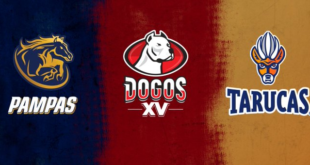The global rugby order is shifting. Slowly but surely the epicenter is moving away from the Anglo Centered point in which World Rugby is based in Dublin, Ireland to becoming a more cosmopolitan sport. This is true in terms of voting power, on-field performance and professionalism.
Office Power
Make no mistake the change has been snail’s pace but it can be seen. At long last the voting structure of World Rugby has been changed with Argentina and Italy now set to obtain equal power to that of Scotland and Wales.
Overall the reforms have been conservative with the Pacific Islands having missed out on acquiring votes by virtue of not meeting the stated criteria. Those who have demonstrated organizational excellence and have steady book records have votes. Georgia, Romania and the USA, for instance, are set to now have equal power to that of Canada and Japan.
The door that has been opened will surely see different structural behavior over the coming years. It is of no coincidence that the organization is to be run by two former players and that they are to come from the old and new schools of thought, specifically England and Argentina.
England’s traditional approach is set to gel with Argentina’s progressive approach and with it rugby will find a way of maintaining its values while expanding into new markets. Already Agustín Pichot has shaken up the order by threatening the likes of Ireland and Scotland who actively target uncapped foreign players through the three year player eligibility law. Expect to see the law increased to five years before the completion of 2016. This would be very unlikely to happen if Bill Beaumont had a more traditional colleague as incoming Vice President.
On Field Performance
Pichot’s rise to the top is a case of a player being in the right place at the right time. His experiences as Argentine captain during the dark years in between Rugby World Cups 1999 and 2007 are all to well documented. With no regular competition Pumas players had no games outside of the June and November international windows.
Los Pumas did their talking on the field as they won in cities such as Cardiff, Edinburgh, Genoa, London and Marseilles. From there they upset the order where it matters most – the Rugby World Cup. In finishing third in 2007 Argentina won their way onto the top table.
Nine years on it can be concluded that Argentina have succeeded in transforming their rugby entirely and are now in a sustainable position. Cases in points include a second appearance in a World Cup Semi Final, wins over Australia and South Africa and the creation of Los Jaguares.
From a global perspective the old order has eroded with Argentina joining France to have genuine alternative to traditional Anglo on-field power. Just consider that Argentina and France have both appeared in the Semi Finals of two of the past three Rugby World Cups. None of England, Ireland, Scotland or Wales have achieved this.
June Internationals
Currently there is no existing Latin bloc involving Argentina, France and others but the foundation exists for this to change. The recently completed World Rugby Nations Cup featured six participants, five of whom speak Romance languages. Playing in Bucharest were the Argentina XV, Emerging Italy, Namibia, Romania, Spain and Uruguay. Of them only Namibia does not speak a Latin language.
Meanwhile at home in Santa Fé and Tucumán Los Pumas faced France and Italy in test matches. All three speak Romance, or Latin languages. Further down the world rankings additional examples exist including Brazil and Chile and even Belgium.
Americas Rugby Championship
Pichot is already actively expanding into new markets. Argentina firmly believes that the Americas has great potential in both onfield rugby and in financial terms. The Americas Rugby Championship was born, in no small part, out of this school of thought.
The competition saw Brazil, Chile and Uruguay getting their desired international competition outside of the South American A Championship and has set forth the ground work for each to step-up their involvement in international competitions in June and November.
It is not just the market potential of Brazil and the USA that interest Argentina but also the much smaller Uruguay. The stated belief is that what is good for Uruguay is good for Argentina and this even includes Super Rugby with the possibility of a Montevideo based side having even been raised.
Nations Cup – Think Latin
Playing in three Rugby World Cups underlines Uruguay’s potential. Last September and October Argentina and Uruguay were joined by France, Italy and Romania as Romance Language countries on the world stage. Both Portugal and Spain have prior experience while the Americas Rugby Championship will be certain to speed up Brazil and Chile.
Which brings me back to the Nations Cup and Uruguay’s interest in hosting the tournament in 2017. Following the inaugural tournament in 2006, which was hosted by Portugal, all nine subsequent tournaments have been played in Romania.
There is no reason why Montevideo would not be a solid alternative. It has the means to host and to turn the event into a genuine Latin Cup. Simply substitute Namibia with one of the above mentioned Latin countries and it would be done.
Better yet, expand it to give it two pools of four rather than two of three. Brazil and Chile would gladly enter with a French equivalent of the Argentina XV and Emerging Italy making it eight. Presently France does not have an ‘A’ side though this could be altered easily enough through World Rugby intervention. With France on board a 2017 competition could be organized.
Under this scenario Namibia would not be forgotten. To the contrary arrangements could be made to effectively accommodate Namibia into the June Internationals window. Canada and the USA would welcome an additional home test match while Georgia would happily tour the South-western African country.
| Pool A | Pool B |
| Argentina XV | Emerging Italy |
| Brazil | Chile |
| Romania | France ‘A’ |
| Spain | Uruguay |
The gains set to be made by all participants are evident. Importantly it would be a cost-effective approach yet, at the same time, enable the prospect for an economically productive Latin Cup overtime.
 Americas Rugby News Rugby news from across the Americas!
Americas Rugby News Rugby news from across the Americas!




